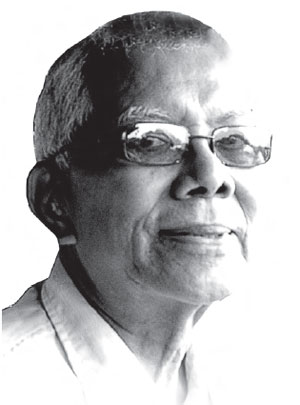
 Among our six honorees this year, is Dr Theodosius Ming Whi Poon-King, whose career has earned him international acclaim. Dr Poon-King will be conferred with a DSc at the ceremony on October 26, where he will address graduates of the Faculty of Medical Sciences. Dr Poon-King’s work has ranged from the effect of scorpion stings on the heart, coronary heart disease, hypertriglyceridaema (elevated triglycerides), diabetes, poststreptococcal glomerulonephritis (a severe inflammatory kidney disease), acute rheumatic fever, streptococcal infections, immunology of streptococcal disease, and yellow fever… to paraquat poisoning. He traced the source of Typhoid Fever in outbreaks of 1967 and 1969. He helped control Poliomyelitis in 1971, and in 1977 during a Yellow Fever outbreak, he worked with a team that demonstrated the virus on electron microscopy in human liver for the first time. Through him, four new nephritogenic streptococci were discovered locally and added to the international literature. It is already a formidable range, and yet does not include work he has done in endocrinology. Through his work on type 2 diabetes, the belief that a diet high in fats was what contributed to the large number of diabetics was dispelled and refined carbohydrates were recognized as the real culprits. Dr Poon-King shared some of his views with editor, Vaneisa Baksh. Among our six honorees this year, is Dr Theodosius Ming Whi Poon-King, whose career has earned him international acclaim. Dr Poon-King will be conferred with a DSc at the ceremony on October 26, where he will address graduates of the Faculty of Medical Sciences. Dr Poon-King’s work has ranged from the effect of scorpion stings on the heart, coronary heart disease, hypertriglyceridaema (elevated triglycerides), diabetes, poststreptococcal glomerulonephritis (a severe inflammatory kidney disease), acute rheumatic fever, streptococcal infections, immunology of streptococcal disease, and yellow fever… to paraquat poisoning. He traced the source of Typhoid Fever in outbreaks of 1967 and 1969. He helped control Poliomyelitis in 1971, and in 1977 during a Yellow Fever outbreak, he worked with a team that demonstrated the virus on electron microscopy in human liver for the first time. Through him, four new nephritogenic streptococci were discovered locally and added to the international literature. It is already a formidable range, and yet does not include work he has done in endocrinology. Through his work on type 2 diabetes, the belief that a diet high in fats was what contributed to the large number of diabetics was dispelled and refined carbohydrates were recognized as the real culprits. Dr Poon-King shared some of his views with editor, Vaneisa Baksh.
VB: What do you make of the growing number of non-communicable diseases, the lifestyle disasters, plaguing the world? You have been working in this area for decades.
TP-K: Non-communicable diseases have become a global problem, largely due to the rise in living standards and the western pattern of development; called westernization, but fundamentally related to lifestyles. PAHO and CARICOM have studied the problem extensively for the past ten years. Dr. Edward Greene’s studies are excellent and should be on the CARICOM website.
VB: How best can our health care system tackle this category of illness? They are obviously an enormous burden.
TP-K: Our health care system is totally inadequate to deal with the problem of diabetes, obesity and hypertension. The Ministry seems to be more concerned with providing services for the complications with more dialysis centres, etc. The emphasis should be on preventing complications. The chronic disease clinics at the Health Centres and the Diabetic Clinics at the hospitals should be re-organized to provide an annual medical audit. Treatment really is a tripod. Patients should be made more aware that they are responsible for their own care with diet, exercise, medication and advice from health care workers. High risk families should be screened for pre-diabetes.
VB: Is it unfair to say that private doctors are now more like agents of pharmaceutical companies? Are they medicating more than treating?
TP-K: It is true that there is over-medication “a pill for every ill” but patients often demand injections, etc. Some doctors receive their information about new drugs from drug representatives rather than the medical literature. This highlights the need for continuing medical education and CME credits.
VB: What would you say has been your biggest contribution to the region?
TP-K: My biggest contribution to the region has been the establishment of the Streptococcal Disease Unit in 1966 for the investigation and control of acute rheumatic fever and recurrent epidemics of acute nephritis. Both diseases were eradicated by rapid and intensive treatments of patients and their families with streptococcal infection in their throats and skin. Surveillance of schools and communities were implemented. We discovered four new streptococci for acute nephritis and one for acute rheumatic fever. The Streptococcal Disease Unit in San Fernando was recognized as a centre of excellence by the experts attending the four-day International Conference on Streptococcal Disease at the Trinidad Hilton, organized by our co-researchers at Rockefeller University in 1978.
VB: What does this honorary degree mean to you?
TP-K: I am happy to become an Honorary Graduate of The University of the West Indies and join the rest of my family who are already graduates of the University. My wife, eldest daughter and two sons – graduates in medicine, and one son a graduate engineer. I shall cherish the Honorary Doctorate in Science and wish the University all the best for the future. |





